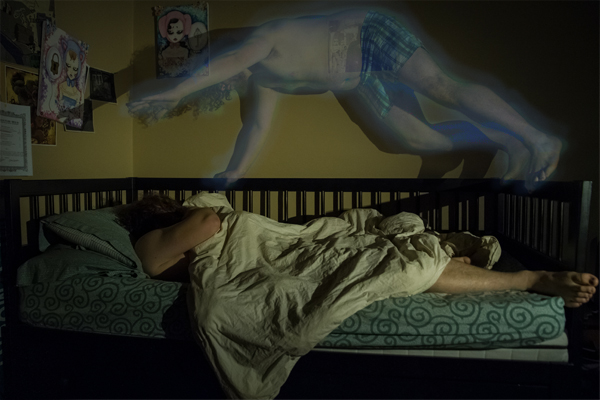Out-of-province students will see an increase of five per cent, while international students‘ tuition increase varies between 5.5 and seven per cent, depending on completed course units
On Monday, May 30, University of Ottawa students, community members, and media trickled down the steps of Jock-Turcot University Centre to take part in a protest organized by the University of Ottawa Students’ Association (UOSU) to contest rising tuition fees for out-of-province and international students.
UOSU members, politicians, and students emphatically contested an increase to tuition for out-of-province and international students.
After opening remarks in the University Centre, protesters marched in lockstep to Tabaret Hall, chanting their commitment to public education and equitable tuition all the way there. Their voices were not the only ones heard, however.
Just two weeks prior on May 17, UOSU posted an Instagram video to mark the beginning of their STOP Tuition Increase campaign. Since then, 5,500 letters have been sent to President Jacques Frémont and Provost Jill Scott in an attempt to curb any increase to tuition for out-of-province and international students. As such, these students’ voices were among the cacophony that filled the interior of Tabaret Hall that day, proclaiming the importance of democracy and equitable tuition.
“The University of Ottawa increased tuition for out-of-province students by five per cent, international students by seven per cent, and returning international students by 5.5 per cent,” pointed out Armaan Singh, President of UOSU and fourth-year political science student, in an interview.
Singh critiqued the U of O’s increase to tuition as disproportionate to the University of Toronto’s, who increased theirs by two per cent despite receiving less funding. Therein, this renders the University of Ottawa’s increase to be “disproportionate to their operating budgets.” Even so, Singh condemns any increase to tuition.
Students, both those affected and unaffected by the tuition increase, were among the participants of the rally.
“I don’t think anyone’s tuition should be hiked. Why should I sit by and allow an international student or an out of province [student’s tuition to increase] — it could have been me if I had lived in Quebec or Saskatchewan,” stated Keltie Cohes, a third-year social work student.
Ty Bradley, a third-year political science student and UOSU Board of Directors member, stated in an interview that he found the tuition hike to be “fundamentally unjust for Canada, one of the richest countries in the world, and Ontario, one of the richest provinces in that country.”
Lucille Collard, Ottawa-Vanier Liberal MPP, was not only in attendance, but expressed her adamant support for the cause at hand. As a mother to four children, and having served as a school trustee, she is a “a strong believer that education is the land of opportunity that starts everything.”
Lyra Evans, Ottawa-Vanier NDP candidate, is another champion of affordable education.
“Because I was a homeless teenager, and I couldn’t afford to go to university and it delayed the start of my university experience by five years,” explained Evans in a statement at the rally. “And I know there are other people in that situation, people who look at university as a path to a better job as a path to a more secure life, who can’t afford it. And they say, ‘I would go back. I think I’m smart enough. I think I have the aptitude and the drive. But I can’t afford it.’ ”
Tuition, however, is not the only issue on the minds of rally participants. It is but one obstacle of many that weighs on the average U of O student.
“We want to see more affordability for students,” elaborated Collard. “So, it’s not only the tuition fees, but it’s being able to feed yourself and house yourself. Otherwise, it’s just another way that you’re being detracted from going to school or continuing in school. If you need money to survive then you’ll go to work instead of continuing your education.”
“Cost of living is incredibly high,” echoed Evans. “Many people struggle with bills, with food, with rent, and taking on thousands and tens of thousands of dollars of student debt. It’s hard to do. It’s hard to look at those numbers and say, ‘I know that the other end I’m going to be better off.’ ”
“We’re already in the middle of a recession, everything is [priced] super high, including rent, food, everything. So now they want to also increase our tuition. It’s really messed up,” stressed Daphnée Vielleux-Michaud, fourth-year conflict studies and human rights student.
Vielleux-Michaud attests to the impact that increased tuition has on a bilingual institution. While the U of O boasts of French immersion and full-French programs, Vielleux-Michaud points out that such faculties are comprised heavily of Québécois and international students who will be disproportionately affected by the tuition hike.
As this issue of tuition is, thus, indubitably multifaceted, as are the changes rally members hope to see.
“The first, and I think the most short term change that needs to be made, is the fact that the university needs to stop increasing tuition. You know, we can’t see any more tuition increases. The second is, we definitely need a change, and Queen’s Park,” declared Singh.
“We have to move to a framework where tuition is not just affordable, but tuition is free. Tuition is definitely a fundamental right. And it’s a way that we can empower our workforce, and power our economies, but also just make sure that, you know, folks are getting the education that they deserve,” concluded Singh in an interview with the Fulcrum.
The nature of the protest accurately reflected the intentions of UOSU. Instead of a slew of impersonal student numbers, Jill Scott and Jaques Frémont were confronted by corporeal students and audible chants laced with tangible concern for the U of O population.
“Tuition has increased by over 200 per cent, since 1980. International tuition has increased by over 190 per cent since the last decade,” emphasized Singh. “But, you know, these statistics are statistics, and we want to make sure that the university knows that decisions impact real life people, and, you know, that’s potentially gonna have really big negative impacts on the lives of these students.”
At the Board of Governors meeting that transpired just hours after the protest, Jessica Tchida and Hannan Mohamud, undergraduate student representatives, both voted against the motion.
Despite the efforts of Tchida, Mohamud, and the attendees of the STOP Tuition Increase rally, the motion to approve the university’s proposed 2022-23 budget, including the tuition increase, passed.






